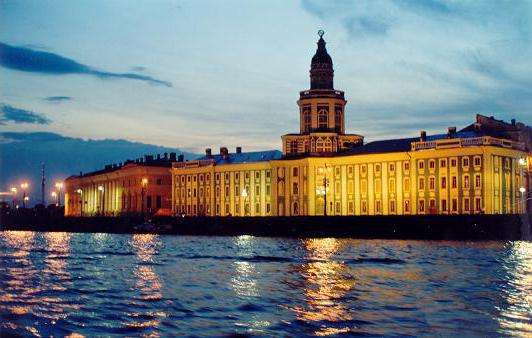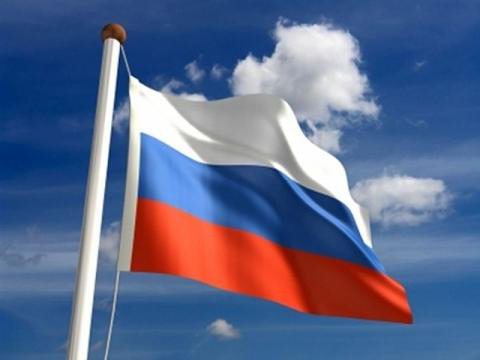It would seem that such a widespread, simple and familiar from school days phrase “city of federal significance”. In fact, not everything is so simple, and not everyone understands to the end the essence and significance of this legal phenomenon, as well as its features, which distinguish the holder of a special status from the situation of other constituent entities of the Russian Federation.

Subjects of federal significance
The main criterion for their selection is a special way of organizing local government bodies in them. They should not be confused with municipalities, since they themselves are objects of territorial division of the Russian Federation and may include several of their types at once. It is also worth emphasizing that they are on the same legal level with other entities.
How is the status acquired?
The legal status of a city of federal significance is established at the legislative level. In particular, such a prerogative belongs to the main Russian law - the Constitution of the Russian Federation. Article 5 of the law also determines that Russian cities of federal significance have the right to issue their own regulatory legal acts through their representative bodies. In any case, the status is assigned to those entities that have important political, strategic or economic significance for the whole country as a whole. For example, Moscow, being the capital of the Russian Federation, plays a crucial political role both for the country itself and for the international community as a whole. St. Petersburg is the former capital of Russia for almost two hundred years, the cultural capital of the world level today, one of the largest economic, scientific and educational centers of the Russian Federation. All this serves as a confirmation that the city bears the title of its title is justified and deserves it in full.
St. Petersburg is the former capital of Russia for almost two hundred years, the cultural capital of the world level today, one of the largest economic, scientific and educational centers of the Russian Federation. All this serves as a confirmation that the city bears the title of its title is justified and deserves it in full.
Recently, Sevastopol is recognized as a subject of the Russian Federation - a city of federal significance on the one hand, the main military base of the Black Sea Fleet - on the other. This indicates the special strategic importance of the subject, which also justifies the existence of an appropriate legal status.
The specifics of cities of federal significance
Their main difference from the rest of the subjects is a special territorial and political organization of power on the ground. Cities of federal significance are divided into intracity territories, which are municipalities in their position. Their number in St. Petersburg is one hundred and eleven, and in Moscow there are as many as one hundred forty-six units. However, in Sevastopol at the moment only ten such entities are registered. The features of cities of federal significance do not end there.
It is also worth noting the political nuances in management structure subjects: in order to some extent of centralization of power, part of the local authority passed to the competence of the subject. Another feature of cities with such a status is the application of special rules of Russian law to them. For example, Article 8 of the Budget Code gives a city of federal significance the power to determine the sources of budget funds for inner-city territories, as well as the procedure and amount of gratuitous cash deductions in the form of subsidies and subsidies local budget. The Town Planning Code establishes a list of planning documents for internal territories, and also indicates that if local acts do not identify issues in the field of urban planning, the authorities of the subject take on their decision. In addition, the territory of these cities is subject to special rules of tax, civil and criminal law.
Cities of the Russian Federation with special status
At present, three subjects of the Russian Federation are officially assigned to them: Moscow, St. Petersburg and Sevastopol. When asked which cities have the status of federal significance, in response, many will name these three subjects of our country. However, not everyone knows that the international agreement between Russia and Kazakhstan of December 23, 1995, the city of Baikonur is also endowed with such a status. This decision is due to the functioning of the Baikonur cosmodrome on its territory, which required the establishment of a special regime for it. However, the contract is valid only for the period of the lease of the complex by the Russian Federation until 2050. At the same time, the city is by no means a subject of the Russian Federation, but also continues to be under the jurisdiction of Kazakhstan.
This decision is due to the functioning of the Baikonur cosmodrome on its territory, which required the establishment of a special regime for it. However, the contract is valid only for the period of the lease of the complex by the Russian Federation until 2050. At the same time, the city is by no means a subject of the Russian Federation, but also continues to be under the jurisdiction of Kazakhstan.
Moscow is a city of federal significance
In accordance with the Law "On the organization of local self-government", the capital provides for the division of local authorities, depending on the type of municipality, whether it is an urban district (Troitsk, Scherbinka), a municipal district (Arbat, Izmailovo, Lyublino, etc.) or settlement (Vnukovskoye, Ryazanovskoye, Rogovskoye, etc.).
For example, in the municipal district of Arbat there is a Council of Deputies where meetings are held and public hearings as well as the Administration, which carries out executive activities within its territorial borders. Similar bodies work in other districts, settlements or districts, and they differ mainly by their names (for example, in one city formation the Council of Deputies can be established, and in another the municipal Assembly will perform the same functions) and some other details, already determined local requirements and living conditions of citizens. However, this does not change the essence. It is worth noting that the names and boundaries of intracity territories in Moscow were established back in 2003 by the relevant legislative act of the subject. Since cities of federal significance, due to their special status, require more thorough legal regulation, their internal territory also falls under the jurisdiction of state authorities. In this regard, attention should be paid to the territorial structure of the subject. The peculiarity of the administrative division of Moscow lies in the establishment of the territorial districts defined by law (Central, North-West, Zelenogradsky, etc.), there are twelve in all. Each district is headed by a prefecture, which, in turn, is subordinate to the Government of the Russian Federation. The main task of the body is to coordinate the activities of district governments.
Since cities of federal significance, due to their special status, require more thorough legal regulation, their internal territory also falls under the jurisdiction of state authorities. In this regard, attention should be paid to the territorial structure of the subject. The peculiarity of the administrative division of Moscow lies in the establishment of the territorial districts defined by law (Central, North-West, Zelenogradsky, etc.), there are twelve in all. Each district is headed by a prefecture, which, in turn, is subordinate to the Government of the Russian Federation. The main task of the body is to coordinate the activities of district governments.  The Prefecture also exercises control over Moscow state institutions and state enterprises. In addition, her competence includes cooperation with state authorities of the Russian Federation and the city of Moscow, interaction with local authorities, legal entities and private individuals. However, she does not have the right to intervene in matters of local importance.
The Prefecture also exercises control over Moscow state institutions and state enterprises. In addition, her competence includes cooperation with state authorities of the Russian Federation and the city of Moscow, interaction with local authorities, legal entities and private individuals. However, she does not have the right to intervene in matters of local importance.
Sevastopol is a city of federal significance
According to modern legislation, the status of federal significance of Sevastopol, given the transition period of adaptation to new conditions, does not fundamentally differ from the legal status of other such entities. After Russia passed a law on the adoption of new territories into its composition, the question arose of determining their state and legal status.  As a result, Sevastopol was recognized as a constituent entity of the Russian Federation with federal significance assigned to it.As mentioned above, this decision was due to the most important military-strategic position of the city, which has the status of a military base of the Black Sea Fleet. It is interesting that even before the transfer of Sevastopol to the Russian Federation, in 1997 an agreement was signed between Russia and Ukraine to lease a naval base until 2017, and in 2010 D.A. Medvedev and V.F. Yanukovych extended the agreement for another twenty-five years, however, given recent events, this agreement has lost its legal significance.
As a result, Sevastopol was recognized as a constituent entity of the Russian Federation with federal significance assigned to it.As mentioned above, this decision was due to the most important military-strategic position of the city, which has the status of a military base of the Black Sea Fleet. It is interesting that even before the transfer of Sevastopol to the Russian Federation, in 1997 an agreement was signed between Russia and Ukraine to lease a naval base until 2017, and in 2010 D.A. Medvedev and V.F. Yanukovych extended the agreement for another twenty-five years, however, given recent events, this agreement has lost its legal significance.
Conclusion
In total, in the Russian Federation there are four subjects of federal significance, among which the Kazakh city of Baikonur can conditionally be attributed. Their status is established by the Constitution and other laws of the Russian Federation. A feature of such cities is a specific territorial structure, the presence of strategically important facilities, as well as a special political, cultural, and economic situation. In this regard, special rules and norms of Russian legislation are applied to them.
Cities of federal significance are not municipalities; they themselves include intracity territories. Authorities entities cannot interfere with the competence of local self-government, but at the same time they can interact with its bodies in one direction or another.



